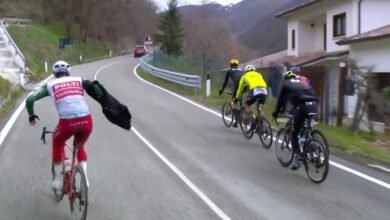What We Learned from the First Life Time Grand Prix Race of 2025

“], “filter”: { “nextExceptions”: “img, blockquote, div”, “nextContainsExceptions”: “img, blockquote, a.btn, a.o-button”} }”>
Underneath a dense layer of fog blanketing the Sea Otter Classic, athletes lined up on the Laguna Seca Raceway for the opening round of the 2025 Life Time Grand Prix (LTGP). For the past three years, the LTGP kicked off with the Fuego XL mountain bike race, but this year marked the first time the Sea Otter Gravel Race served as the series opener.
With no precedent for the new 90-mile gravel course — which packed in over 9,000 feet of climbing — the race was wide open. Historically, Sea Otter favored mountain bikers, with gravel specialists simply trying to hang on. This year, with the switch to gravel, many hoped the tide would turn in favor of drop-bar athletes.
Yet, early signs suggest the shift hasn’t tipped the balance just yet. In the men’s race, Keegan Swenson emptied the tank and left it all out there in a sprint finish over Matthew Beers. On the women’s side, it was Olympian and mountain biker Haley Batten — racing outside the LTGP — who dominated with a commanding solo win. Series contender Sofia Gomez Villafañe took second, five minutes back.
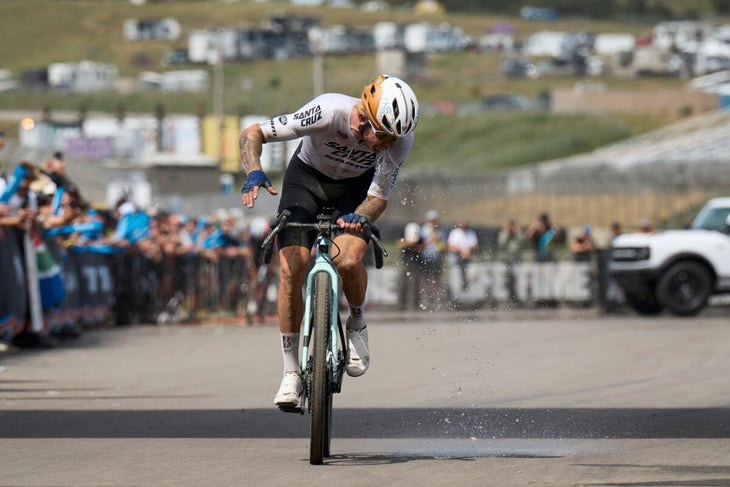
So the question lingers: do the changes to the LTGP calendar truly favor gravel racers — or are mountain bikers still holding the upper hand? And what about the non-series athletes who continue to shake up the results?
In the men’s race, a lead group of nine stuck together for nearly 80 miles before Swenson launched his decisive attack on the final climb, showcasing his familiar dominance. Though he showed a chink in the armor at Cape Epic earlier this season, his performance at Sea Otter reaffirmed that within the LTGP, he remains the one to beat.
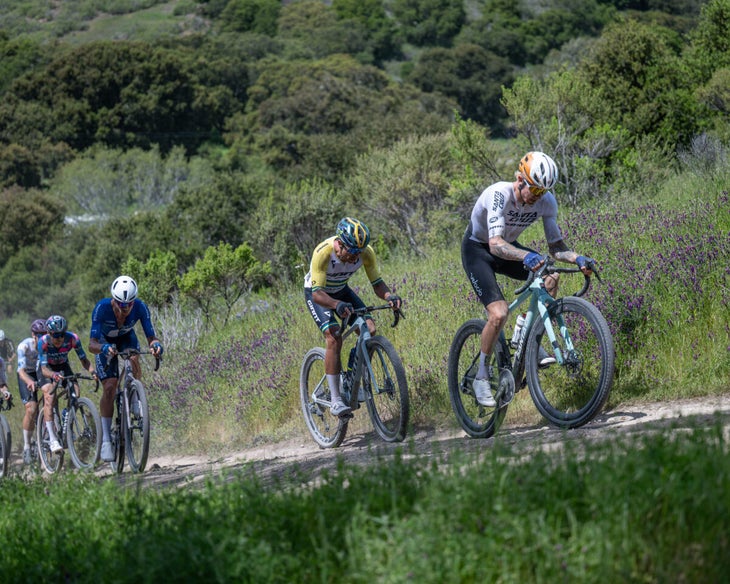
Of the top-20 elite men in the Sea Otter Gravel Race, only 11 are officially competing in the Grand Prix, highlighting the strength of riders outside the series. Wild Card entrants like Petr Vakoč (fourth) and Matthew Wilson (seventh) could prove disruptive to the season-long standings.
Heading into the next round at Unbound Gravel, Beers and Alexey Vermeulen appear to be Swenson’s primary challengers. The trio shared the podium at last year’s Fuego XL and are no strangers to Sea Otter success. While Vermeulen is often labeled more of a roadie than a mountain biker, he continues to show his strength on technical courses.
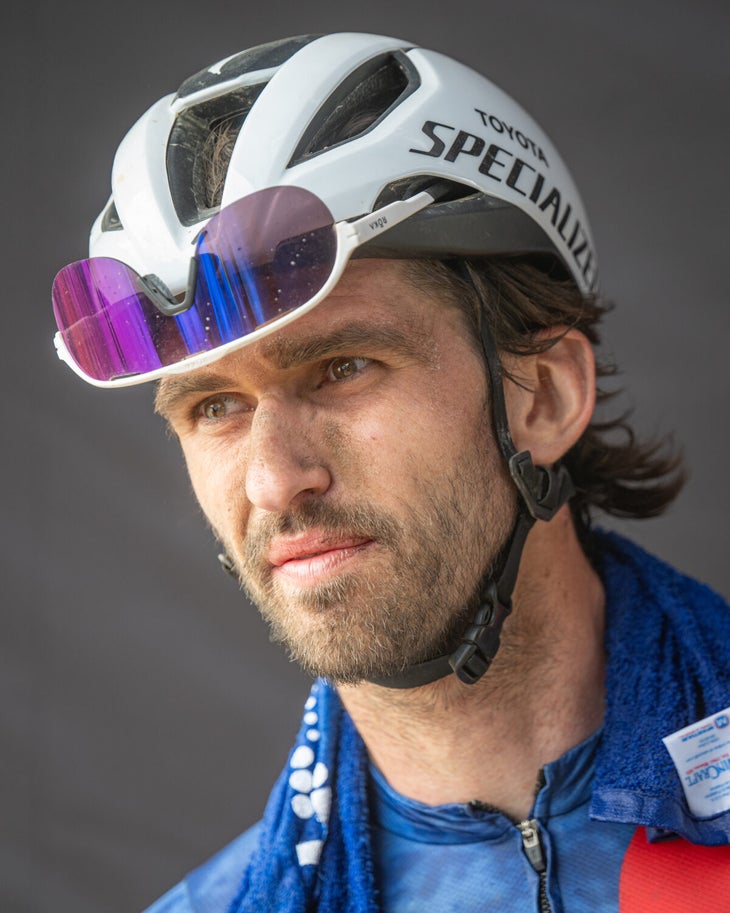
“It’s always good to start the season off with a win here, in terms of confidence and points,” Swenson said. “It’s nice to have a little buffer heading into Unbound too, because that’s a crazy, hectic race where anything can happen.”
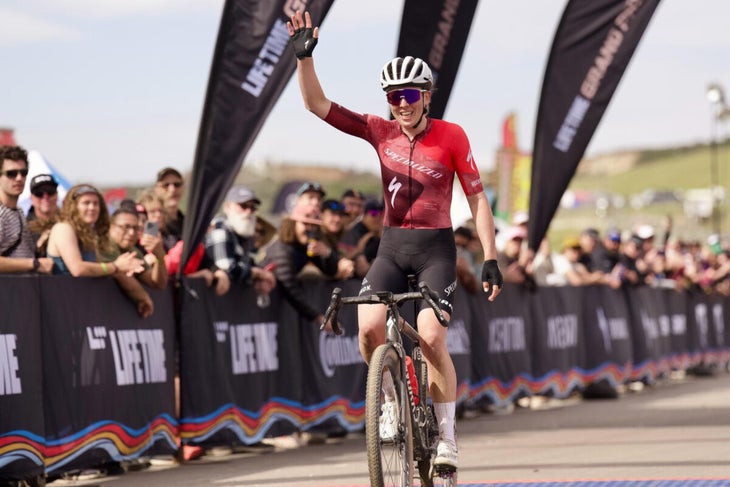
On the women’s side, the narrative is less clear-cut. Batten’s win, in her first-ever gravel race, was a powerful display of her athleticism and tactical prowess — she attacked on lap two with over 40 miles to go and never looked back. Gomez Villafañe, who had been ill for two weeks leading up to the race, held off a hard-charging Cecily Decker to secure second, with Decker rounding out the podium in third.
Decker’s performance may be the breakthrough of the day, and she could be one to watch at future LTGP events.
The women’s field in this year’s LTGP also features several rookies. Riders like Courtney Sherwell, Cécile Lejeune, and Axelle Dubau-Prévôt broke into the top 15, suggesting that the series could see significant shake-ups as the season progresses.
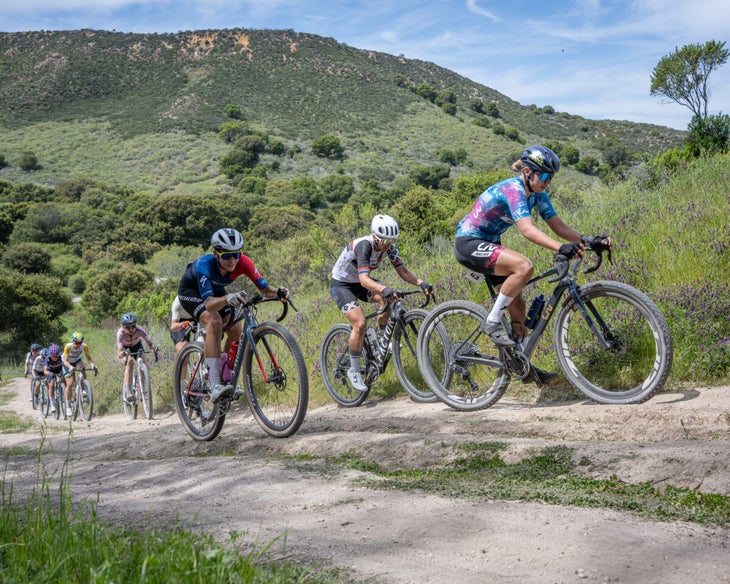
“As for the series, it’s exciting to have a deeper field, with more international riders coming in,” Gomez-Villafañe said. “It’s been really cool to see all the changes that Life Time has been making too, especially with the no drafting rule, and they are always elevating the support they give us as riders.”
Still, trying to predict the results of Unbound — or the outcome in the rest of the LTGP series — based on Sea Otter results is no easy task. Each of the six races on the LTGP calendar caters to different types of riders, and there is a lot that can happen between now and the season finale at Big Sugar in October.
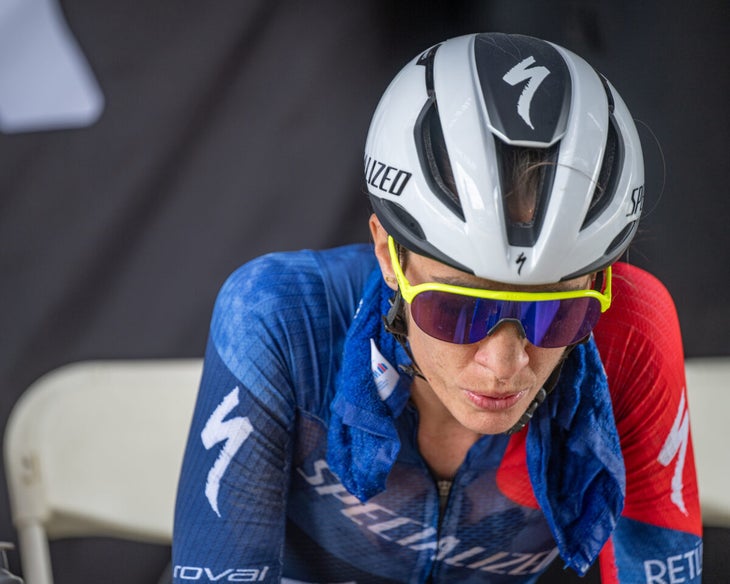
For example, while both Sea Otter and Unbound are considered gravel races, the similarities end there. Sea Otter is a technical course composed of three 30-mile laps, each with 3,000 feet of punchy climbing and singletrack descents. It favors mountain bikers with strong climbing and descending skills.
Unbound, on the other hand, plays out more like a road race. Riders typically stay in large groups for at least the first 100 miles. It’s more than twice the distance of Sea Otter, with ample opportunity for chaos: flat tires, mechanical issues, and nutrition miscalculations are just a few of the wildcards that can derail a strong ride.
From there, the third stop of the series is Leadville Trail 100 MTB. While Swenson has won the last two years, anything is possible as proven by Melisa Rollins taking the win there over Gomez-Villafañe in 2024.
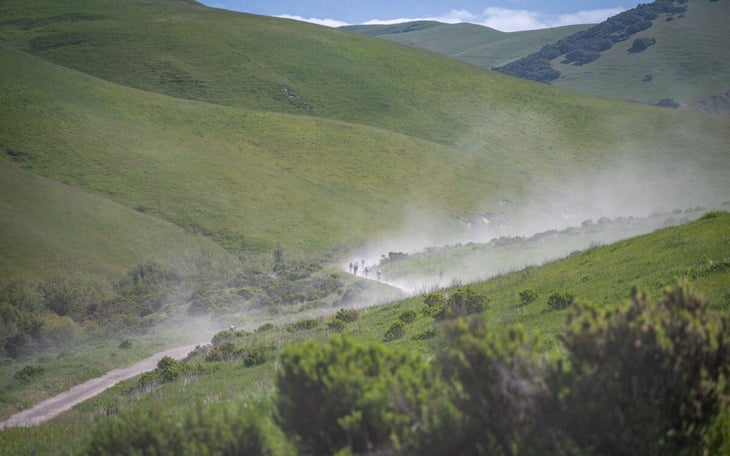
Kimo Seymour, Life Time senior vice president of media and events, summed up the state of the Grand Prix best: “It’s clear we’re in for a very entertaining and competitive 2025 series.”

